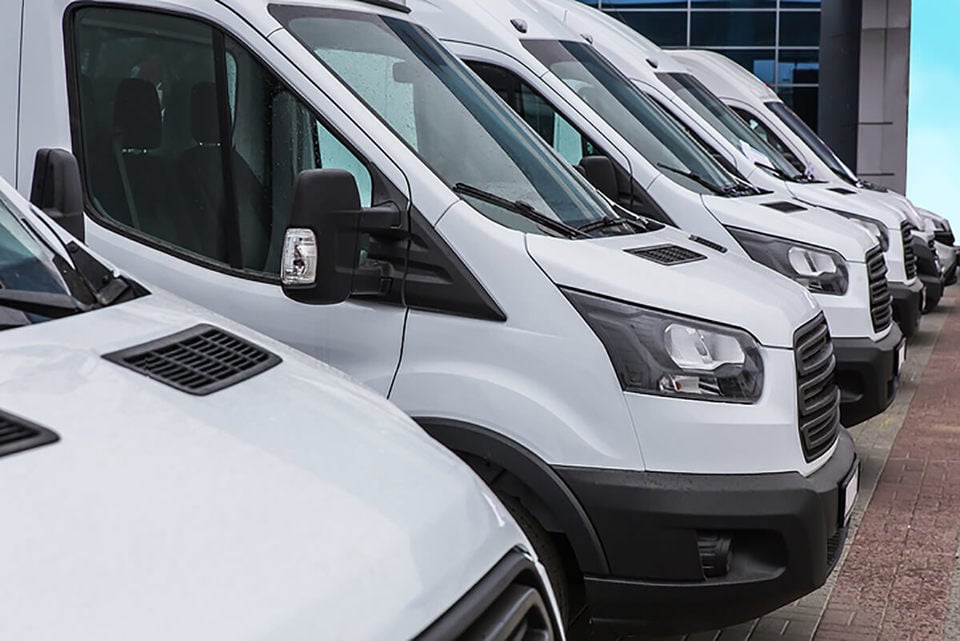The Government has been criticised for failing to offer fleets the urgent fiscal support required to replace diesel vans with electric light commercial vehicles (LCVs).
With zero-emission vans accounting for just 4.7% of the new van market so far in 2024, the Government risks missing its zero emission vehicle (ZEV) mandate target for 2024 of 10%.
Last month, a new campaign, headed by the British Vehicle Rental and Leasing Association (BVRLA), was launched to help accelerate the uptake of zero-emission vans.
The Zero Emission Van Plan has brought together Association of Fleet Professionals (AFP), Logistics UK, Recharge UK and EV Café to call on the Government to provide greater fiscal support, improve charging infrastructure and remove regulatory barriers. Fleet News has also joined the campaign.
However, the Budget failed to offer any measures to help drive the uptake of electric vans or cars.
A Zero Emission Van Plan spokesperson said: “The Chancellor is ignoring the fact that the van sector needs urgent support to adopt zero-emission vehicles.
“Cost is a major barrier to adoption. The discrepancy between affordability of EVs versus diesel equivalents is prohibitive.
“The Zero Emission Van Plan is clear in how that gap can be closed.”
The spokesperson added: “The Chancellor missed a golden opportunity to act. Increased fiscal support via extending the Plug-in Van Grant, or introducing new measures, are essential.
“We will continue to push for such changes until tangible progress is made.”
Fleet decision-makers adopting electric vans have been helped by the Government’s Plug-in Van Grant, but that is due to end next year.
Matthew Walters, head of consultancy services and customer value at ALD Automotive LeasePlan UK, said that fleets would have welcomed an extension to the grant.
“This currently scheduled to end on 31 March 2025, which risks creating a cliff-edge for orders,” he added.
A recent BVRLA poll of fleet operators collectively running over 217,000 vans found that 88% of respondents said that the transition to zero-emission vans is not on track.
The same proportion want to see the Plug-in Van Grant needs extended beyond 2024/25, while 86% said that there needs to be new regulations to make public charging work for vans.
Paul Hollick, chair, Association of Fleet Professionals (AFP), acknowledged that ministers can claim a commitment to electrification over the past 14 years.
However, he said: “The truth is that more assistance in this area is now required – especially when it comes to van electrification where there are fundamental issues to overcome as well the need for a further increased rollout of charging infrastructure – and there was no sign of that help arriving at any time soon.
“While minor moves such as the continued reduction of fuel duty is welcome, we very much hope to see more from whoever is in power following the next general election.”
Those working in the fleet sector are being encouraged to support the Zero Emission Van Plan and share its recommendations.
An online tool allows individuals to send it to their local MP to raise awareness, while fleet operators can also complete an online poll to strengthen the data the coalition is putting to decision makers.
Manufacturers criticise lack of EV support

There was disappointment from many in the sector with the Chancellor ignoring calls to help drive electric vehicle (EV) adoption rates.
Mike Hawes, chief executive of trade body the Society of Motor Manufacturers and Traders (SMMT), says support was welcomed for EV development and manufacturing – including £2.1bn in the autumn’s Advanced Manufacturing Plan – but there was "little to help consumer demand" in the Budget is, labelling it a "missed opportunity" to deliver fairer tax for a fair transition.
"Reducing VAT on new EVs, revising vehicle taxation to promote rather than punish going electric, and an end to the VAT ‘pavement penalty’ on public charging would have energised the market," he said.
James Taylor, managing director of Vauxhall, also claimed that the Budget had failed to deliver the acceleration needed to stop the UK’s transition to EVs from stalling.
“Vauxhall will already offer its entire car and van line-up as electric by the end of this year and has a number of highly competitive offers available but we cannot drive demand alone.
“Whilst there are strong incentives for company car drivers to make the switch to electric – including for those choosing luxury vehicles – the private buyer who wants a more attainable small or family car receives nothing.
“Furthermore, if you can charge your electric vehicle at home with off-street parking then you will pay 5% VAT on your electricity. If you don’t have a driveway and rely on public chargers then you will pay 20% VAT on your electricity."
Vauxhall is calling on the Chancellor to urgently set up purchase incentives to stimulate the EV market and review the "unfair taxation" on public charging so that the UK isn’t left behind in the race to more sustainable motoring.






















Lloydy1980 - 07/03/2024 11:50
EVs will be a thing of the past in the very near future....Mark my words